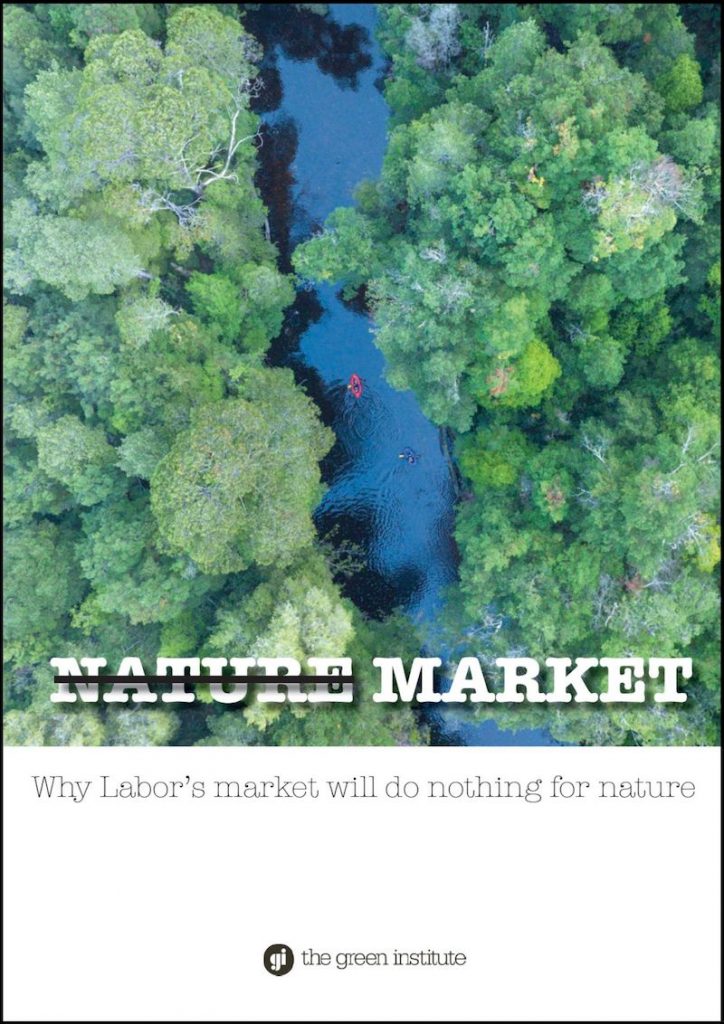Nature | Market: Why Labor’s market will do nothing for nature
How much is a koala’s life worth?
What’s the cash value of preventing the extinction of the orange bellied parrot?
If these are the questions you’re asking, can you expect anything other than a devastatingly, destructively wrong answer?
Labor’s Nature Repair Market Bill, a redraft and repackaging of the ecocidal Morrison government’s proposal to establish a voluntary market for “biodiversity credits”, is a plan for distraction, displacement and rorts that will do nothing to protect, let alone repair, the natural world.
Learn more in this publication from The Green Institute, released on 31 May, 2023.
As Christine Milne writes in this paper:
“The whole complex structural edifice to consult, establish, regulate, measure, certify, contract, trade, report, monitor, account, audit, enforce and administer the Nature Repair Market is deliberately created to be expensive, opaque and open to major errors, nepotism and corruption.”
Melbourne University ecologist, Dr Yung En Chee, writes:
“We have had more than 20 years of global experience with regulatory biodiversity offset markets and still lack credible evidence of demonstrated effectiveness. Why would a proposed voluntary Nature Repair Market work any better? The Nature Repair Market is a delaying and diverting distraction at a time of biodiversity and climate emergency.”
Common Cause’s Dr Eleanor Glenn writes:
“In contrast to ecological thinking and unity with nature, financial markets make us think of nature as a resource, something to ‘invest’ in that will deliver us a financial ‘return’. We’re suddenly thrown into the realm of trade-offs, offsets, cost-benefit analyses, and utilitarian ‘what’s in it for me?’ thinking, where humans stand apart from (or over) nature.”
And Green Institute Executive Director, Tim Hollo, writes:
“How should we judge a government that declares protection of the environment to be a priority and then cries poor when asked to find the funds to do the work, and outsources the work to an obscure and inefficient market? The Green Institute strongly encourages the government to abandon this approach, which has been proven to be deeply problematic, and prepare instead to make major public investments in protecting and rehabilitating ecosystems, underpinned by a legislative framework that introduces legal rights for the natural world.”
